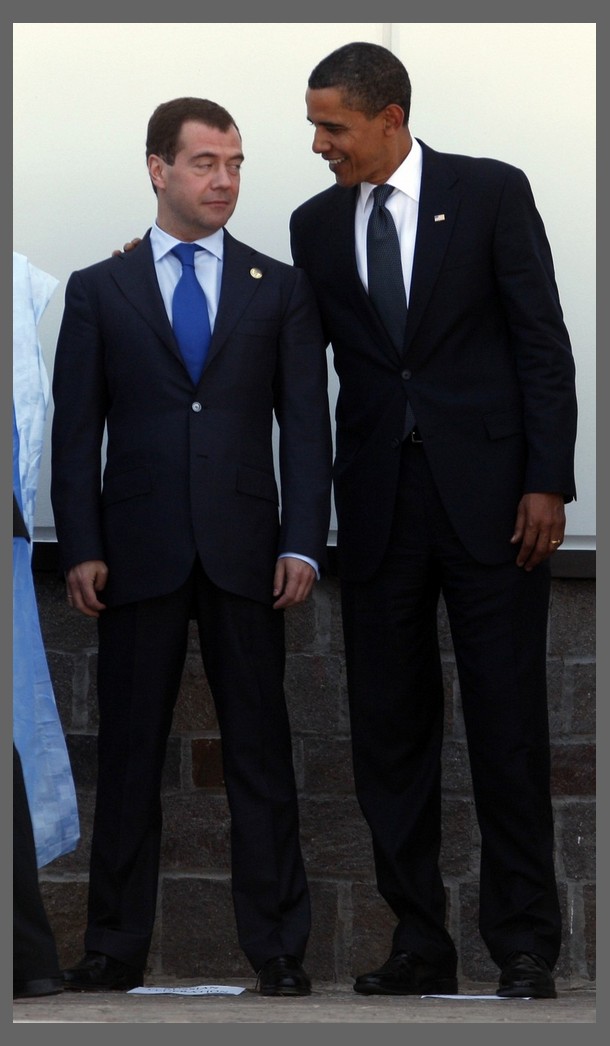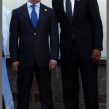
Leading Figures in Central-Eastern Europe Call for U.S. Re-Engagement
Publication: Eurasia Daily Monitor Volume: 6 Issue: 140
By:

In an open letter to the Obama administration, leading public figures from Central-Eastern Europe are calling in urgent terms for U.S. strategic re-engagement with that region, both directly and through NATO. Released to the media on July 16, and based on a concept paper issued three days previously by the German Marshal Fund of the United States (GMF), the open letter carries the signatures of more than 20 personalities including former heads of state and prime ministers, other statesmen and opinion-makers from Central-Eastern European countries. Some of the signatories -such as Lech Walesa, Vaclav Havel- are emblematic of the region’s democratic liberation while others led their countries into NATO and the European Union, with active U.S. support at that time. They write as "friends and allies of the United States" who "care deeply about the future of the transatlantic relationship" (An Open Letter to the Obama Administration from Central and Eastern Europe, July 16; GMF Policy Brief, Why the Obama Administration Should Not Take Central and Eastern Europe for Granted, July 13).
The nine-page letter is suffused with concern over the eroding U.S. engagement in this part of the continent and in Europe’s eastern neighborhood: "The U.S. should reaffirm its vocation as a European power and make clear that it plans to stay fully engaged."
The document conveys the region’s "growing sense of nervousness" since last year’s Russo-Georgian war. "Many countries were deeply disturbed to see the Atlantic Alliance stand by, as Russia violated the core principles of the Helsinki Final Act, the Charter of Paris, and the territorial integrity" of Georgia, a NATO partner country. Even in the alliance’s member countries, "Hopes that Russia would accept [their] full independence have not been fulfilled. Instead, Russia is back as a revisionist power." In Europe "it uses overt and covert means of economic warfare, ranging from energy blockades and politically motivated investments to bribery and media manipulation to challenge the transatlantic orientation" of these countries.
Acknowledging the Europe-wide "collapse in sympathy and support for the United States during the Bush years," the signatories hope that the change of administration in Washington has "created a new opening to reverse this trend, but it will take time and work." The message to the Obama administration is that U.S. re-engagement is necessary to restore the frayed transatlantic ties.
Yet such re-engagement seems far from certain at this juncture. There is, on the contrary, "Nervousness in our capitals… that the United States and major European powers might embrace the Medvedev plan for a "concert of powers" to replace the existing [i.e., NATO] structure. The danger is that Russia’s creeping intimidation and influence-peddling in the region could in time lead to the region’s de facto neutralization."
"Realist" ideas in Washington about possible trade-offs with Moscow over the heads of Central-Eastern Europe, potentially at the region’s expense, are a further matter of concern. This part of Europe "suffered when the United States succumbed to ‘realism’ at Yalta. And [conversely] it benefited when the United States used its power to fight for principle," such as when "opening the doors to NATO. Had a ‘realist’ view prevailed in the 1990’s, we would not be in NATO today and the idea of a Europe whole, free and at peace would be a distant dream."
Despite the new members’ efforts and contributions, however, "NATO today seems weaker than when we joined. In many of our countries it is perceived as less and less relevant, and we feel it. Although we are full members, people question whether NATO would be willing and able to come to our defense in some future crisis." And apart from U.S. de-emphasis on Europe, "Europe’s dependence on Russian energy also creates concern about the cohesion of the Alliance."
Meanwhile, NATO’s distant expeditionary operations detract from homeland defense preparedness. Amid "fears about the Alliance’s defense readiness [o]ur ability to sustain public support at home for Alliance missions abroad depends on being able to show that our own security concerns are being addressed in NATO and in close cooperation with the United States."
The letter outlines a new agenda for cooperation between the United States and Central-Eastern European countries within NATO, carrying implications for the E.U. as well. The overarching goal is a "renaissance of NATO as the most important security link between the United States and Europe… NATO must reconfirm its core function of common defense, even while we adapt to the new threats."
Contingency planning for defense must be recognized as indispensable to sustaining the North Atlantic Treaty’s Article Five. "It was a mistake not to commence with proper Article Five defense planning for new member countries after NATO was enlarged." Such planning would normally include "prepositioning of forces, equipment, and supplies for reinforcement in our region in case of crisis." The letter calls for reinstating NATO-Russia Council procedures whereby NATO member countries take a coordinated position in the dialogue with Russia.
The proposed missile defense shield in Central Europe is seen as a "symbol of America’s credibility and commitment. We should decide the future of the program as allies… not allow the issue to be determined by unfounded Russian opposition." The document subtly alludes to Washington’s dithering on missile defense and occasional consultations with Moscow over the heads of Central Europe on this issue. As members of the E.U. and close friends of the United States, these countries are interested in closer coordination of E.U. common foreign and defense policies with those of NATO. The signatories call for these ideas to be included in the new NATO Strategic Concept, the drafting of which was set to begin after the change of administration in Washington and of the NATO leadership in Brussels.
While acknowledging that energy security is a primary E.U. responsibility, the letter urges that it be elevated to an "integral part of E.U.-U.S. strategic cooperation." Specifically, the document urges Washington to leverage its security relationship with Turkey for a more cooperative Turkish attitude to the Nabucco gas transport project.
Overall, the document reflects growing concerns that the United States and East-Central Europe have been drifting apart strategically and the trend could continue under the present order of Washington’s policy priorities. In that case, U.S. influence in NATO, the E.U, and in Europe generally would decline, particularly if U.S. policies allow however inadvertently an increase in Russian influence over Central-Eastern Europe. The challenge to the new U.S. administration consists of reinforcing that region’s Atlanticist orientation and its strategic alignment with the United States.




